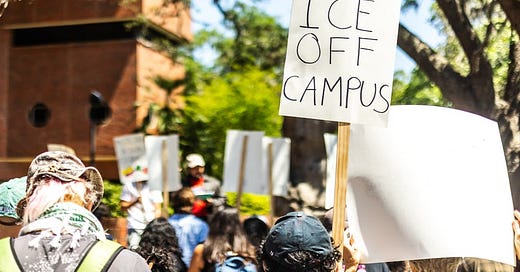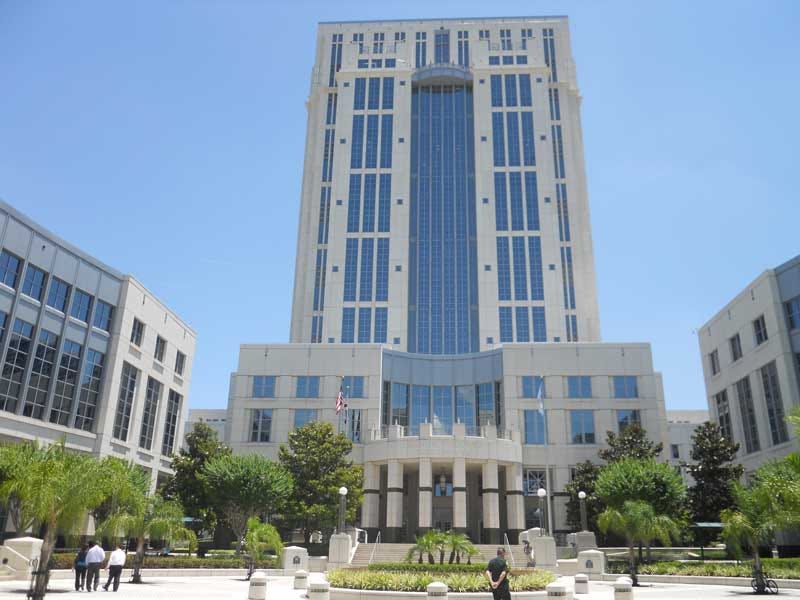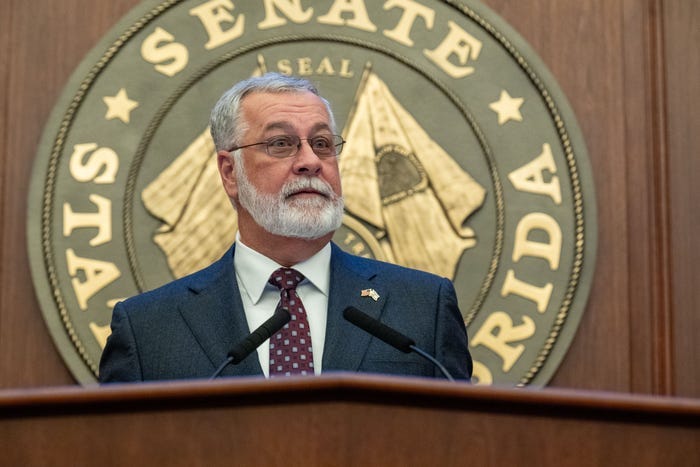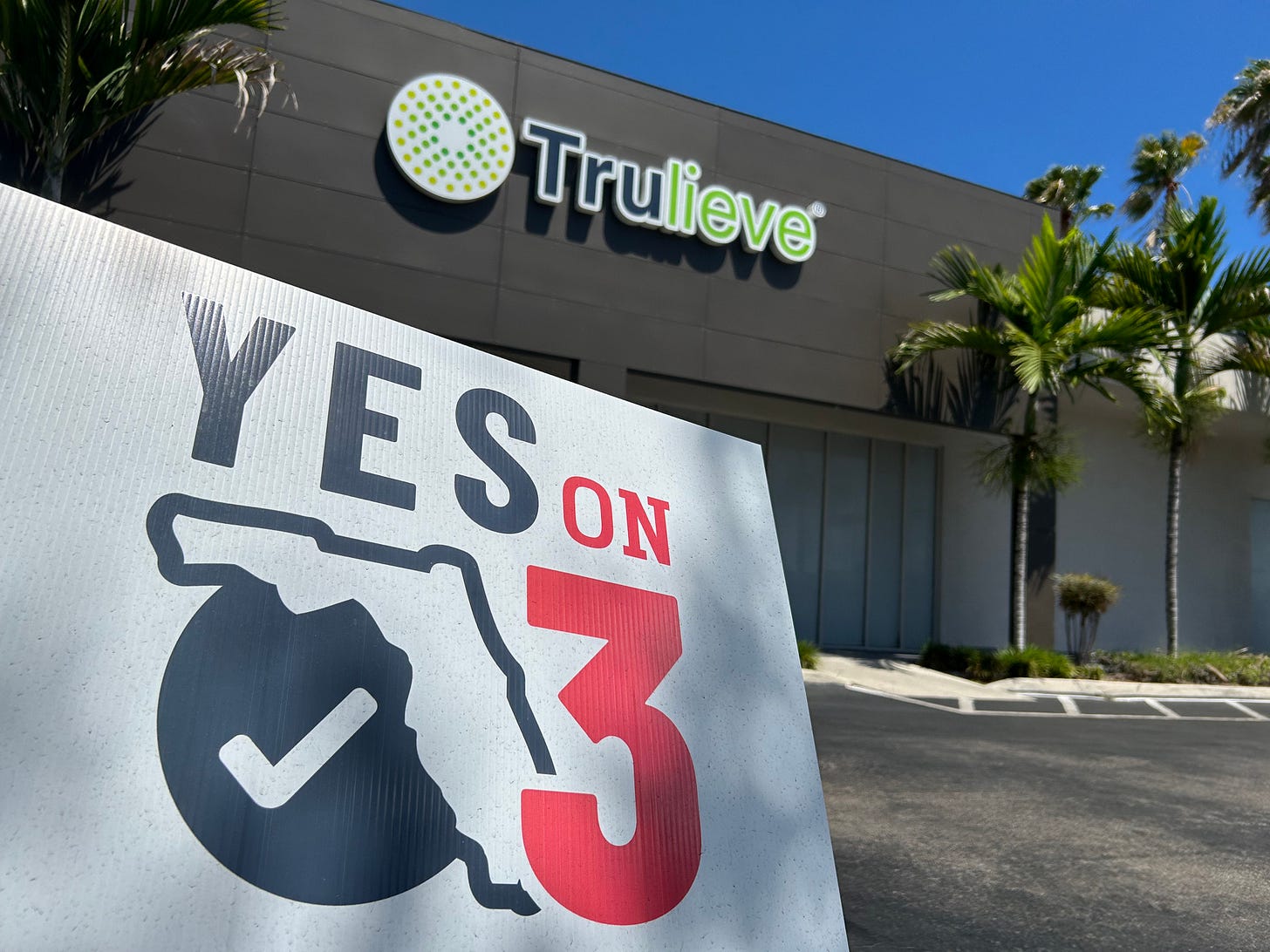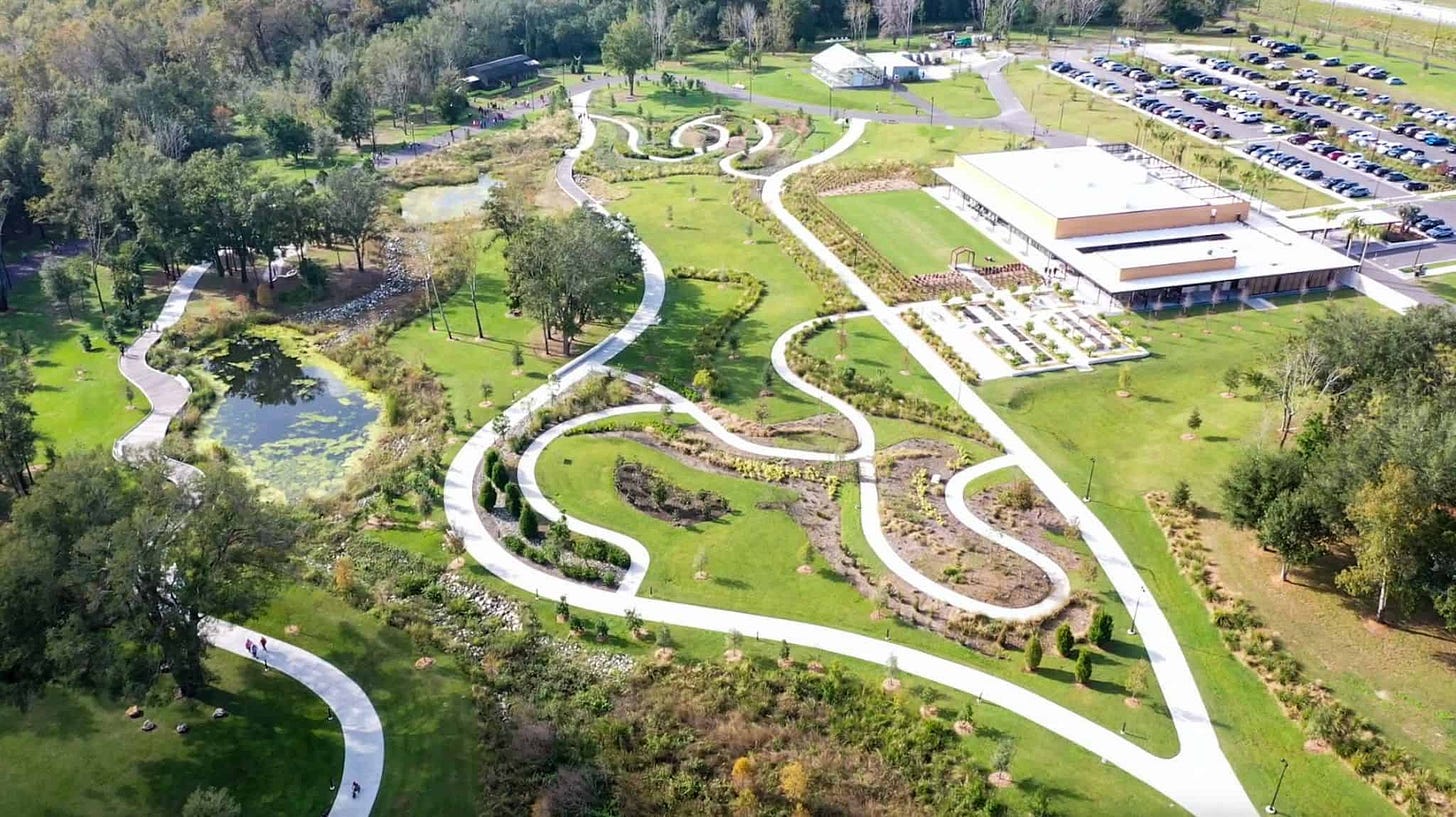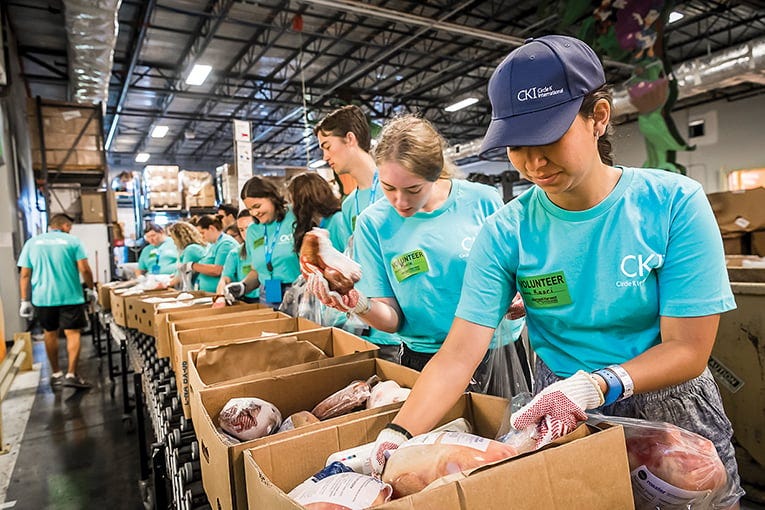Florida's State Universities Sign Federal Immigration Enforcement Agreements & Lawmakers Set to Ban Fluoride from Drinking Water
April 21, 2025 - This Week's News from Central Florida
Welcome to this week’s edition of the Central Florida Times, an independent, reader-supported newsletter focusing on the Sunshine State. These are the most important stories you need to know from across Central Florida. To never miss an update, subscribe here:
Here’s the latest from Central Florida…
All State Universities in Florida Sign Agreements to Cooperate with ICE
All 12 Florida public universities have now entered into agreements with U.S. Immigration and Customs Enforcement (ICE) under the federal 287(g) program, empowering campus police to question, detain, and process individuals for immigration violations. The signed memoranda authorize local agencies to assist in immigration enforcement, including warrant execution and detainment, after receiving ICE training. The newly signed agreements apply to the largest universities in Florida and among the largest in the U.S., including the University of Central Florida (UCF), the University of Florida (UF), and Florida State University (FSU). University police departments join hundreds of law enforcement agencies nationwide by complying with the federal initiative. The move aligns with previous directives from Gov. Ron DeSantis, encouraging full statewide participation in the 287(g) program, including college police departments. The cooperation comes amid protests on campuses nationwide following the deportation of international students, including one University of Florida student detained and deported by ICE after a traffic-related arrest. Student activists are urging universities to immediately withdraw from the agreements, arguing that it endangers immigrant students by encouraging racial profiling, surveillance, and overall fear. The concerns are especially felt at universities in South Florida like Florida International University (FIU), which boasts a majority-minority student population that is largely immigrant, including about 600 individuals protected under the Deferred Action for Childhood Arrivals (DACA) program. School officials have defended their actions, stating that they are publicly funded institutions that must comply with state and federal laws. With Florida leading nationwide in local ICE partnerships, the mandates test universities’ balance between legal compliance and their traditional role as safe, inclusive spaces that preserve access to education for all, regardless of status.
Lawmakers Set to Approve Bill Banning Fluoride from Water Supply
The Florida Senate has approved legislation that would prohibit the addition of fluoride to public water systems, marking a significant shift in state policy after decades of fluoridation aimed at improving dental health. The measure, part of a broader agriculture bill, passed 27-9 and would prevent local governments from introducing substances to water supplies unless they are strictly for “water quality” purposes. For decades, fluoride has been added to water to prevent tooth decay, especially in children. Supporters, including bill sponsor Sen. Keith Truenow (R-Tavares), argue the move is about personal choice and health safety, echoing concerns raised by state Surgeon General Dr. Joseph Ladapo about potential neurodevelopmental risks of fluoridation. A similar bill (HB 651) in the Florida House passed its final committee on Thursday, setting up a full vote on the floor before it travels to the governor’s desk. If enacted, Florida would follow Utah in banning fluoridation statewide.
Attorney General Sends Prosecutors to Assist Orange-Osceola State Attorney with Backlog
Florida Attorney General James Uthmeier has announced that his office will deploy a team of prosecutors to assist State Attorney Monique Worrell with a growing backlog of 13,000 non-arrest cases in the 9th Judicial Circuit, which covers Orange and Osceola counties. Uthmeier disclosed the plan at a press conference alongside Orange County Sheriff John Mina, emphasizing the urgency of clearing the backlog and ensuring that “dangerous people are put behind bars.” He criticized Worrell’s recent decision to stop accepting most non-arrest referrals, except for serious offenses like homicide and trafficking, a move she attributes to strained resources. Uthmeier accused Worrell of using “resources” as an excuse and argued her policies violate the state constitution. Worrell responded by welcoming the help, stressing the need for collaboration, but questioned the political motives behind the DeSantis-appointed attorney general’s approach. She highlighted that the backlog predates her administration, citing similar numbers under previous state attorneys since 2012. Worrell also pointed to chronic underfunding of the judicial system and called for a permanent solution, including more staff, to prevent future backlogs.
Pending State Legislation Addresses Autism Prevalence, Child Welfare
With the legislative session nearing its end, Florida lawmakers are still debating two major bills focused on children’s issues: child protection and autism. Senate President Ben Albritton (R-Wauchula) has prioritized both measures, which remain in motion as the deadline approaches. One bill, led by Sen. Erin Grall (R-Vero Beach), seeks to improve vacancies among the strained child welfare workforce by recruiting case managers and child protective investigators, particularly those with backgrounds in public safety. The proposal also aims to address child sex trafficking and would launch a four-year pilot program for professional foster care, targeting children with complex mental health or behavioral needs. This initiative would require the Department of Children and Families (DCF) to collect more placement data and provide specialized training for foster parents caring for high-needs children. Another bill, sponsored by Sen. Gayle Harrell (R-Stuart) aims to enhance support for children with autism, addressing its rising prevalence that now affects 1 in 31 U.S. children. The measure targets gaps in autism care by extending the Early Steps program for autistic children until age four, bridging the current yearlong lapse in services. It also funds free autism screening and referrals statewide and requires the University of Florida Center for Autism and Neurodevelopment to oversee grants and collaborate on improving autism services and awareness. Another provision would appropriate funding for autism-specific specialized summer learning camps and the development of charter schools for such students, in addition to establishing an autism micro-credential for teachers and child care staff. The goal is to enhance early detection, intervention, and individualized support for children on the spectrum. Both bills have strong backing among Senate leadership, increasing their chances of passage, but progress on the child welfare bill in the House remains stalled. The legislation may serve as leverage in final negotiations between both chambers.
Trulieve Invests $19.6M in 2026 Recreational Marijuana Push
Trulieve, a leading medical marijuana company, has poured $19.6 million into a renewed campaign to legalize recreational cannabis in Florida. According to a recent campaign finance report, the money was given between January and March 2025 to the political committee Smart & Safe Florida, which aims to place a revised constitutional amendment on the 2026 ballot. In addition to the cash contributions, Trulieve also provided $84,417 worth of in-kind support. Other donors chipped in a combined $1,420 during the same period. This marks a continuation of Trulieve’s major financial backing of the legalization movement—it contributed roughly $145 million to support a 2024 ballot measure that ultimately failed to meet Florida’s 60% threshold for constitutional amendments. So far, the committee has spent about $19.47 million this year, mostly on gathering petition signatures. As of mid-April, the state had validated 150,804 signatures. To qualify for the 2026 ballot, 880,062 are needed.
Private Equity Firms Own Nearly 25% of Tampa Bay Apartments, Report Finds
Nearly one in four apartment units in the Tampa Bay area are now owned by private equity firms, according to new research from the Private Equity Stakeholder Project. The nonprofit’s analysis highlights a dramatic rise in corporate ownership, particularly since 2018. The firms own 56,683 units locally, representing 23.4% of the market, with two-thirds acquired since 2018. Nationwide, private equity firms control about 10% of apartment units, with over half located in just five Sunbelt states, including Florida. Tampa Bay ranked seventh in the country for its concentration of these holdings. The report links private equity owners to inflated rents, maintenance neglect, and increased eviction filings. Rents in Tampa Bay surged 49% from 2019 to 2023, coinciding with a spike in cost-burdened renters. Over 61% of tenants now spend more than 30% of their income on housing, the sharpest rise among major U.S. metros. The Private Equity Stakeholder Project says corporations focus on regions experiencing rapid population increases and where laws offer little security to renters. Along with apartments, firms are also buying single-family homes. A previous analysis by the Tampa Bay Times found that in the Tampa Bay region alone, around 27,000 houses are held by corporate landlords.
Lakeland’s Bonnet Springs Park Named USA Today's Best City Park of 2025
Bonnet Springs Park in Lakeland is gaining national acclaim after being named USA Today’s Best City Park of 2025. The 168-acre green space, opened just two years ago on a reclaimed rail yard, has quickly become a favorite destination for locals and tourists alike. From winding nature trails to vibrant playgrounds and tranquil water features, the park blends nature, recreation, and community-focused amenities. Key features driving its acclaim include miles of trails, a butterfly conservatory, multiple playgrounds, the Florida Children’s Museum, regular food truck rallies, outdoor concerts, and educational programs. The park’s success is more than visual — it's also a tourism boost, drawing about one million annual visitors. “Our goal is to promote Lakeland and make Central Florida a great place to live,” said Josh Henderson, CEO of Bonnet Springs Park. Orlando's Lake Eola Park secured the No. 4 spot in the rankings, recognizing its picturesque skyline views, swan paddle boats, cultural offerings at the Walt Disney Amphitheater, and a vibrant Sunday farmers market as a premier urban destination. The rankings by USA Today combined expert nominations with public voting among readers that selected winners.
I-4 Congestion Relief: New Lanes to Open in Polk County Ahead of Schedule
Drivers in Central Florida will soon see relief on one of the region’s busiest highways. Governor Ron DeSantis announced that new “congestion relief lanes” on Interstate 4 in Polk County will open the week of April 28, finishing eight months ahead of schedule. The project adds one lane in each direction from U.S. 27 in Polk County to World Drive in Osceola County, a stretch near Disney World notorious for heavy traffic. The early completion is part of DeSantis’ “Moving Florida Forward” initiative, which has committed $75 billion to nearly 700 infrastructure projects statewide since 2019. Using a modified phased design-build approach, the Florida Department of Transportation accelerated construction to deliver the improvements sooner than planned. Additional upgrades along the 14-mile corridor include new express lanes, interchange improvements, bridge work, resurfacing, and enhanced safety features. FDOT is also expediting work at County Road 532 and World Drive interchanges and preparing more projects to improve traffic flow and regional connectivity. The new lanes will remain open throughout construction, offering immediate benefits to thousands of daily commuters.
Second Harvest Food Bank of Central Florida Loses $11M in Federal Aid
The Trump administration has permanently suspended a key federal food assistance program, leaving Central Florida’s largest food bank scrambling to fill an $11 million shortfall in food supplies. Second Harvest Food Bank of Central Florida learned that after a temporary pause, the U.S. Department of Agriculture (USDA) decided to end Commodity Credit Corporation-funded orders under the Emergency Food Assistance Program (TEFAP). The aid is a crucial source of fresh, perishable food distribution support for food banks nationwide. Second Harvest CEO Derrick Chubbs said the food bank has lost about $15 million in product in less than a month, impacting the high-quality food, such as dairy, produce, and protein, distributed to families and partner pantries. The loss amounts to roughly six million meals, with orders officially canceled by March 31. Some federal funding remains, but at much lower levels. Second Harvest partners with 700 organizations and is now appealing to the community for donations to help bridge the shortfall. The organization expects the impact to be felt most acutely by July.
All Children’s Hospital Invests $33M to Prepare for Hurricane Season
Johns Hopkins All Children’s Hospital in St. Petersburg will spend $33.7 million to strengthen its campus against future hurricanes after sustaining $1.51 million in damage during Hurricanes Helene and Milton. CEO K. Alicia Schulhof detailed the plan to city leaders, describing the need to invest in flood barriers, reinforced doors, upgraded cooling systems, septic tanks, and the relocation of vulnerable underground steam lines to a new 28,000-square-foot facility. The upgrades are part of a larger $62 million expansion expected to open in 2026. Officials say the new state-of-the-art expansion will boost energy resilience, improve emergency care, and help the hospital serve other regions during storms. With over 60% of patients relying on Medicaid, Schulhof emphasized the need for city and philanthropic support. The hospital hopes to receive funds from St. Pete’s $160 million federal storm recovery grant program, though eligibility remains uncertain. As Florida’s top-ranked children’s hospital, All Children’s also assists other regions during disasters and serves as a primary referral center for complex pediatric cases, drawing patients from all 50 states and 36 countries.
Thanks for reading this edition of the Central Florida Times. To never miss an update, subscribe for free:
In the meantime, if you learned something or found this read interesting, please consider sharing it to grow our community!


